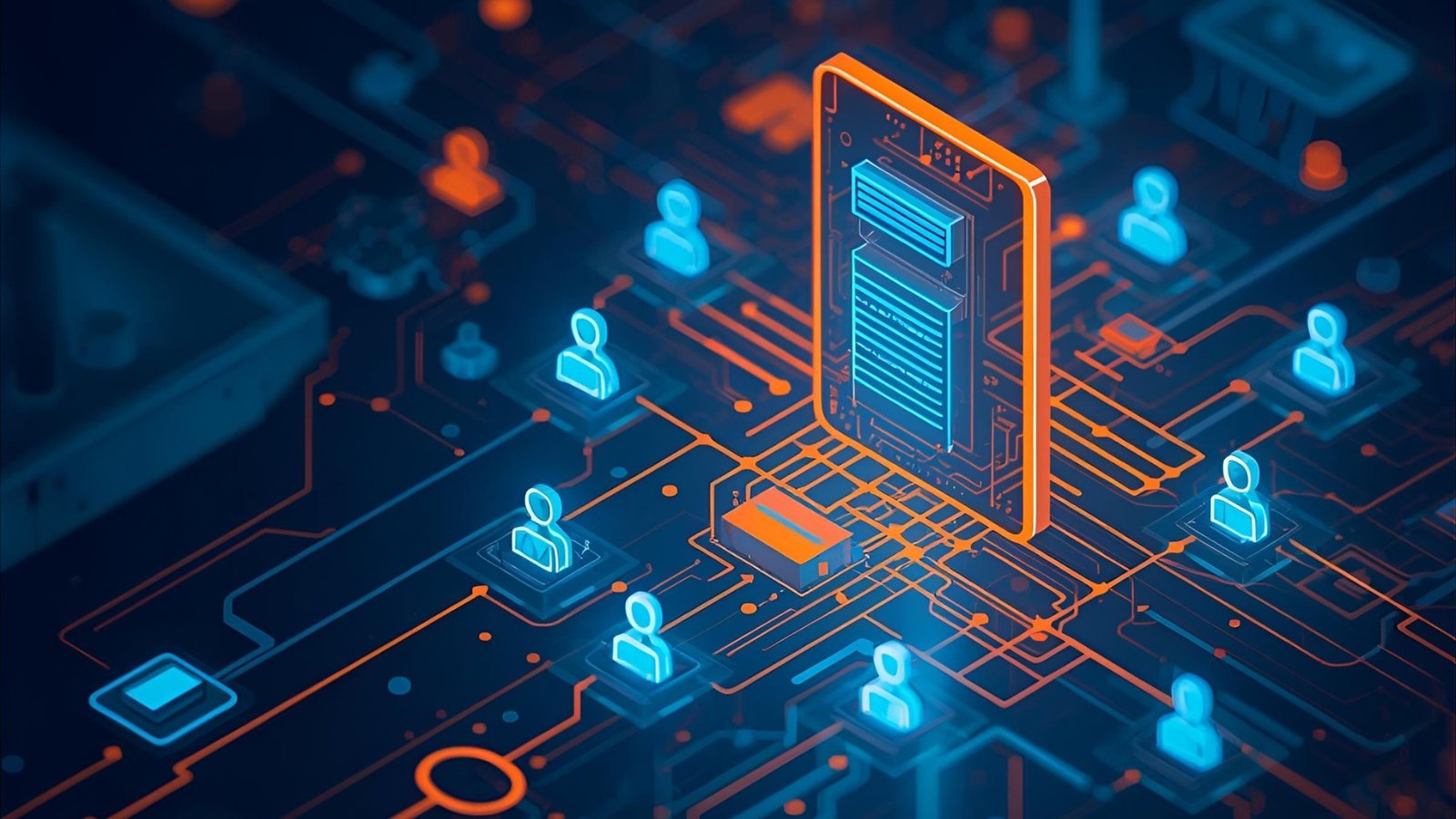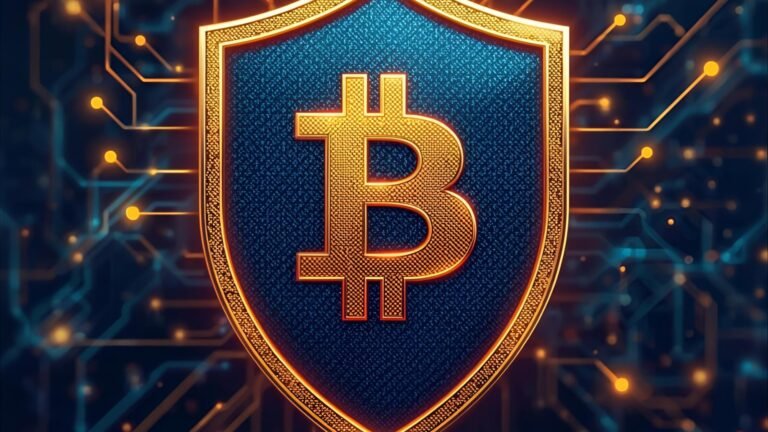The digital gaming industry has witnessed unprecedented growth, with millions of players worldwide investing time and money in virtual worlds. However, this expansion has brought significant security challenges, from data breaches to fraudulent transactions. Blockchain-enhanced security in online gaming has emerged as a revolutionary solution, drawing valuable lessons from traditional safe deposit systems that have protected valuable assets for centuries.
Modern online gaming platforms handle billions of dollars in transactions annually, making them attractive targets for cybercriminals. Players store valuable digital assets, ranging from rare in-game items to cryptocurrency, which require robust security measures. The integration of blockchain technology into gaming ecosystems represents a paradigm shift, offering transparency, immutability, and decentralized security that traditional systems cannot match.
Safe deposit systems have long been the gold standard for protecting valuable physical assets. Banks employ multiple layers of security, including biometric authentication, time-locked vaults, and redundant verification processes. Similarly, blockchain enhancing security online gaming platforms implement cryptographic protocols, distributed consensus mechanisms, and smart contracts to create virtually impenetrable digital vaults for gaming assets.
Blockchain Security Fundamentals in Gaming
Blockchain-enhanced online gaming security operates on fundamental principles that mirror traditional security systems, while offering enhanced digital protection. The decentralized nature of blockchain eliminates single points of failure, distributing security across multiple nodes worldwide. Each transaction is cryptographically secured and recorded on an immutable ledger, creating an audit trail that cannot be altered or deleted.
The consensus mechanism ensures that all network participants agree on the validity of transactions before they are recorded permanently. This process prevents fraud, double-spending, and unauthorized modifications to player accounts or asset ownership. Smart contracts automate security protocols, executing predetermined rules without human intervention, reducing the risk of errors or malicious manipulation.
Gaming platforms utilizing blockchain technology can verify asset authenticity, track ownership history, and prevent unauthorized transfers. Players gain unprecedented control over their digital possessions, with cryptographic keys providing exclusive access to their accounts and assets. This system eliminates the need to trust centralized gaming companies with valuable digital property.
Cryptographic Protection Mechanisms
The cryptographic foundations of blockchain gaming security employ advanced mathematical algorithms to protect player data and assets. Public-private key cryptography ensures that only legitimate owners can access their gaming accounts and transfer assets. Hash functions create unique digital fingerprints for each transaction, making tampering immediately detectable.
Digital signatures provide authentication and non-repudiation, proving that transactions originated from legitimate account holders. These cryptographic tools work together to create multiple layers of security, similar to how traditional safe deposit systems combine physical barriers, electronic surveillance, and human oversight to protect valuable items.
Zero-knowledge proofs allow players to verify ownership or complete transactions without revealing sensitive information. This technology protects privacy while maintaining security, enabling features like anonymous tournaments or confidential asset trading within gaming environments.
Safe Deposit System Parallels Traditional Security Meets Digital Innovation

Traditional safe deposit systems have protected valuable assets for over 150 years, establishing proven security principles that blockchain-enhancing security online gaming platforms now adapt for digital environments. Physical safe deposit boxes require multiple keys, with banks holding one and customers controlling another, creating a dual-control system that prevents unauthorized access.
Similarly, blockchain gaming platforms implement multi-signature wallets requiring multiple cryptographic signatures to authorize high-value transactions. This approach distributes control among several parties, preventing any single entity from unilaterally accessing or transferring valuable gaming assets.
Time-locked mechanisms in traditional vaults prevent access outside authorized hours, adding temporal security layers. Blockchain systems employ similar concepts through time-locked smart contracts that restrict asset transfers or trading during specific periods, protecting players from impulsive decisions or unauthorized access during security breaches.
Audit Trails and Accountability
Safe deposit facilities maintain detailed access logs, recording every entry and exit with timestamps, signatures, and witness verification. Blockchain enhancing security online gaming creates even more comprehensive audit trails, recording every transaction, asset creation, and ownership transfer on the immutable blockchain ledger.
These digital records provide unprecedented transparency, allowing players to verify their asset history and detect any suspicious activity immediately. Regulatory authorities can also audit gaming platforms more effectively, ensuring compliance with financial regulations and consumer protection laws.
The permanent nature of blockchain records means that fraudulent activities leave indelible evidence, deterring malicious actors and providing clear evidence for legal proceedings when necessary. This level of accountability exceeds traditional gaming platforms and matches the stringent record-keeping standards of financial institutions.
Real-World Implementation Gaming Platforms Leading the Security Revolution
Several pioneering gaming platforms have successfully implemented blockchain enhancing security online gaming solutions, demonstrating the practical benefits of this technology. These platforms showcase how blockchain principles can address common security vulnerabilities while enhancing user experience and trust.
Axie Infinity revolutionized blockchain gaming by creating a secure ecosystem where players truly own their digital pets and items. The platform’s use of Ethereum blockchain ensures that player assets cannot be arbitrarily deleted or modified by the game developers, providing security comparable to owning physical collectibles in a bank vault.
CryptoKitties introduced millions of users to blockchain gaming security, demonstrating how unique digital assets can be securely traded and owned. The platform’s smart contracts prevent duplication of rare digital cats, ensuring scarcity and authenticity through cryptographic verification.
Enterprise-Grade Security Implementations
Major gaming companies are integrating blockchain security features into existing platforms, leveraging lessons learned from safe deposit systems. These implementations focus on protecting high-value accounts, securing tournament prize pools, and preventing cheating through tamper-proof scoring systems.
Square Enix has experimented with blockchain-based digital collectibles, implementing security measures that protect both the company’s intellectual property and players’ investments. Their approach combines traditional gaming expertise with cutting-edge blockchain security, creating hybrid systems that maximize protection while maintaining usability.
Ubisoft’s blockchain gaming initiatives focus on creating secure marketplaces for in-game assets, implementing multi-layered security protocols that verify ownership, prevent fraud, and ensure fair trading practices. These platforms demonstrate how blockchain enhancing security online gaming can scale to support millions of users while maintaining enterprise-grade security standards.
Smart Contracts: Automated Security Protocols in Gaming
Smart contracts represent the digital evolution of traditional safe deposit system protocols, automating security procedures while eliminating human error and corruption possibilities. These self-executing contracts contain predetermined rules encoded in blockchain infrastructure, automatically enforcing security policies without requiring trust in third parties.
Gaming platforms utilize smart contracts to implement complex security scenarios, such as escrow services for peer-to-peer trades, automated tournament payouts, and time-locked asset releases. These contracts operate transparently, with all participants able to verify the code and understand exactly how security protocols function.
The immutable nature of smart contracts means security policies cannot be changed arbitrarily, providing players with confidence that rules will remain consistent. This predictability fosters trust, much like knowing that bank vault security procedures adhere to established protocols that cannot be altered without proper authorization.
Conditional Security Measures
Advanced smart contracts implement conditional security measures that respond to specific threats or circumstances. For example, contracts can automatically freeze suspicious accounts, require additional verification for large transactions, or implement cooling-off periods for high-value asset transfers.
These automated responses occur faster than human intervention, preventing many types of fraud before they can cause damage. Blockchain-enhanced online gaming platforms can respond to threats in real-time while maintaining transparency about why security measures were triggered.
Machine learning algorithms can be integrated with smart contracts to detect unusual patterns and automatically implement appropriate security responses. This combination of artificial intelligence and blockchain technology creates adaptive security systems that improve over time while maintaining the transparency and immutability of blockchain infrastructure.
Decentralized Asset Protection: Beyond Traditional Gaming Security
Blockchain-enhancing security in online gaming transcends traditional centralized security models by distributing asset protection across global networks. This decentralization eliminates single points of failure that have plagued conventional gaming platforms, where server compromises could affect millions of players simultaneously.
Distributed storage ensures that player assets and progress remain safe even if individual servers fail or are compromised. The blockchain network automatically replicates data across multiple nodes, creating redundancy that exceeds the backup systems used by traditional gaming companies.
Players gain unprecedented control over their digital assets, with private keys providing exclusive access regardless of the gaming platform’s operational status. This independence protects players from company bankruptcies, server shutdowns, or arbitrary account suspensions that have historically resulted in asset losses.
Cross-Platform Asset Security
Blockchain technology enables secure asset portability between different gaming platforms, creating standardized security protocols that protect player investments across multiple games. This interoperability requires consistent security standards, driving innovation in blockchain enhancing security online gaming implementations.
Players can securely transfer rare items, characters, or achievements between compatible games without risking fraud or asset loss. Smart contracts facilitate these transfers while maintaining security verification and preventing unauthorized duplications.
The standardization of blockchain gaming assets creates network effects that improve security for all participants. As more platforms adopt compatible standards, the collective security infrastructure becomes more robust and harder to compromise.
Privacy Protection in Blockchain Gaming Environments
While transparency is a key feature of blockchain technology, blockchain enhancing security online gaming platforms must balance visibility with player privacy protection. Advanced cryptographic techniques allow platforms to verify transactions and prevent fraud without exposing sensitive personal information.
Zero-knowledge proofs enable players to demonstrate ownership or eligibility without revealing underlying data. This technology allows for secure tournament participation, age verification, and anti-cheating measures while protecting player anonymity.
Layer-2 scaling solutions provide additional privacy features by processing transactions off-chain before recording summarized results on the main blockchain. These solutions reduce costs while maintaining security and enabling more sophisticated privacy protections.
Regulatory Compliance and Privacy
Gaming platforms must navigate complex privacy regulations while implementing blockchain security features. Blockchain enhancing security online gaming systems can be designed to comply with GDPR, CCPA, and other privacy laws through careful architecture and selective data storage.
Pseudonymous gaming allows players to maintain privacy while enabling security verification and fraud prevention. This approach strikes a balance between regulatory compliance and user privacy expectations, fostering sustainable business models that protect all stakeholders.
Data minimization principles guide the design of secure blockchain gaming systems, storing only essential information on-chain while maintaining comprehensive security protections. This approach reduces privacy risks while maximizing security benefits.
Fraud Prevention and Anti-Cheating Measures
Traditional gaming platforms struggle with sophisticated cheating and fraud schemes that cost the industry billions annually. Blockchain-enhancing online gaming security provides new tools for detecting and preventing these malicious activities through transparent, verifiable systems.
Immutable game logs make it impossible to alter match results or player statistics after recording, preventing many forms of cheating that rely on data manipulation. Smart contracts can automatically detect unusual patterns and flag suspicious activities for investigation.
Decentralized tournament systems eliminate single points of control that cheaters might exploit, distributing verification across multiple independent nodes. This approach makes collusion more difficult and expensive, deterring many fraudulent schemes.
Economic Security Mechanisms
Token-based gaming economies implement economic incentives that discourage cheating and fraud while rewarding honest behavior. Players stake valuable tokens when participating in competitive matches, losing these stakes if caught cheating.
Reputation systems track player behavior across multiple games and platforms, creating long-term consequences for malicious activities. Blockchain enhancing security online gaming platforms can share reputation data securely while protecting player privacy.
Automated penalty systems can immediately respond to detected violations, freezing assets or restricting access without requiring human intervention. These rapid responses minimize damage while maintaining fairness through transparent, predetermined rules.
Future Innovations: Quantum-Resistant Security and Beyond
The evolution of blockchain enhancing security online gaming must anticipate future threats, including potential quantum computing attacks on current cryptographic systems. Developers are already implementing quantum-resistant algorithms to ensure long-term security for valuable gaming assets.
Post-quantum cryptography research focuses on mathematical problems that remain difficult even for quantum computers. Gaming platforms that invest in these technologies today will maintain a security advantage as computing power continues to advance.
Hybrid security systems combine multiple cryptographic approaches to provide redundant protection against various attack vectors. This layered approach ensures that gaming assets remain secure even if individual security measures are compromised.
Biometric Integration and Advanced Authentication
Future gaming security systems will integrate biometric authentication with blockchain verification, creating seamless yet highly secure access controls. Biometric data stored locally on user devices can unlock blockchain-secured gaming accounts without transmitting sensitive information.
Behavioral biometrics can detect account takeovers by analyzing playing patterns, reaction times, and decision-making processes. Blockchain-enhanced online gaming platforms can implement these features while maintaining player privacy through advanced cryptographic techniques.
Multi-modal authentication systems combine traditional passwords, biometric verification, and blockchain signatures to create robust security barriers that adapt to different threat levels and user preferences.
Also Read: Proven Methods Buy Altcoins Without KYC Verification 2025
Industry Adoption Challenges and Solutions

Despite the clear security benefits, blockchain-enhancing security in online gaming faces adoption challenges, including technical complexity, scalability concerns, and regulatory uncertainty. Successful implementation requires careful planning and stakeholder education.
User experience design must balance security features with gaming enjoyment, ensuring that blockchain technology enhances rather than complicates the gaming experience. Intuitive interfaces can hide technical complexity while maintaining security benefits. Scalability solutions, including layer-2 protocols, sharding, and hybrid architectures, enable blockchain gaming platforms to support millions of users while maintaining security and performance standards.
Developer Education and Best Practices
Gaming developers need specialized training to implement blockchain security features effectively. Educational programs focusing on cryptographic principles, smart contract development, and security auditing help build expertise within the gaming industry.
Security-first development methodologies ensure that blockchain gaming platforms are designed with protection as a primary concern rather than an afterthought. These approaches reduce vulnerabilities and improve overall system resilience. Community-driven security initiatives foster collaboration among gaming companies, blockchain developers, and security researchers to identify and address emerging threats collectively.
Economic Benefits of Enhanced Gaming Security
Blockchain-enhancing online gaming creates economic value by reducing fraud losses, increasing player confidence, and enabling new business models. Secure gaming environments attract more players and encourage higher spending on in-game assets.
Reduced fraud costs enable gaming companies to allocate more resources to game development and improvements in player experience. These efficiency gains benefit both companies and players through better games and lower costs.
New revenue streams emerge from secure asset trading, cross-platform integrations, and blockchain-based gaming services. These opportunities create economic incentives for continued security innovation.
Insurance and Risk Management
Blockchain gaming platforms can offer insurance products for valuable digital assets, creating additional revenue streams while protecting players from losses. Smart contracts can automate claim processing while preventing fraudulent claims.
Risk assessment tools help players understand the security implications of their gaming activities, enabling them to make informed decisions about asset investments and trading activities.
Predictive analytics identify potential security threats before they materialize, allowing proactive measures that minimize risks and costs for all stakeholders.
Global Regulatory Landscape and Compliance
The regulatory environment for blockchain enhancing security online gaming continues evolving as governments develop frameworks for digital assets and gaming regulation. Proactive compliance strategies enable platforms to navigate these complex requirements effectively.
International cooperation on gaming security standards fosters consistency across jurisdictions, promotes innovation, and enhances player protection. These standards benefit from lessons learned in the regulation of traditional safe deposit systems.
Self-regulation initiatives within the gaming industry establish best practices and security standards that exceed minimum regulatory requirements, building trust and preventing restrictive government intervention.
Conclusion
Blockchain-enhanced security in online gaming represents a fundamental shift in how we protect digital assets and player interests. By applying lessons learned from traditional safe deposit systems and combining them with cutting-edge cryptographic technology, the gaming industry is building more secure, transparent, and player-focused platforms.
The future of gaming security lies in continued innovation, industry collaboration, and commitment to protecting player interests. As blockchain technology matures and adoption increases, we can expect even more sophisticated security features that maintain the perfect balance between protection and usability.
Gaming companies, developers, and players all benefit from embracing blockchain enhancing security online gaming solutions. The time to invest in these technologies is now, before security threats evolve beyond the capabilities of traditional protection systems.


